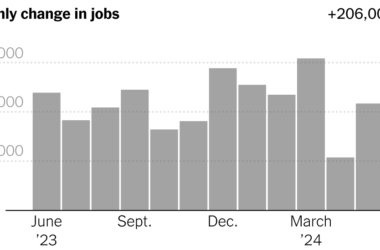The Centers for Disease Control and Prevention reported that the rate of stillborn infants decreased by 5% last year after being constant for the first two years of the COVID-19 pandemic. The rate of infants dying in the womb was 5.45 for every 1,000 live births and fetal deaths in 2022, down from 5.73 in 2021 and 5.74 in 2020.
The provisional count did not include fetal deaths from abortions.
The CDC found that the rate at 20-27 weeks of pregnancy fell by 6%, while late fetal deaths after 28 weeks of pregnancy fell by 4% from 2.8 per 1,000 live births and deaths in 2021 to 2.69 last year. Fetal mortality rates also declined for various racial and ethnic groups.
The CDC reported a “significant decrease” in fetal mortality in seven states: California, Utah, Pennsylvania, New Jersey, Maryland, Florida and Alabama. There were 20,091 fetal deaths nationwide in 2022, down from 21,105 in 2021 and 20,854 in 2020.
Some experts suggested that COVID and infant mortality trends could have played a role in the decrease in fetal deaths. According to Alison Gemmill, a perinatal epidemiologist, COVID spread and a recent increase in infant mortality could explain the drop in fetal mortality.
She also pointed to a separate report released by the CDC, which found the rate of infants dying before their first birthday increased slightly from 5.44 in 2021 to 5.6 deaths per 1,000 live births in 2022. Ms. Gemmill suggested that gestations that would have ended in fetal death in 2021 were born alive in 2022 and died shortly after, possibly due to increased immunity in the population as a result of greater COVID infection and vaccination numbers.
According to health experts, maternal complications are traditionally the main cause of fetal death, including spontaneous labor, umbilical cord issues, problems with the placenta, and the mother’s health conditions. It was noted that abortion restrictions implemented in 2022 did not have sufficient time to affect pregnancies that year.
CDC Reports Show Decrease in Fetal Mortality Rates After Staying Constant During COVID








